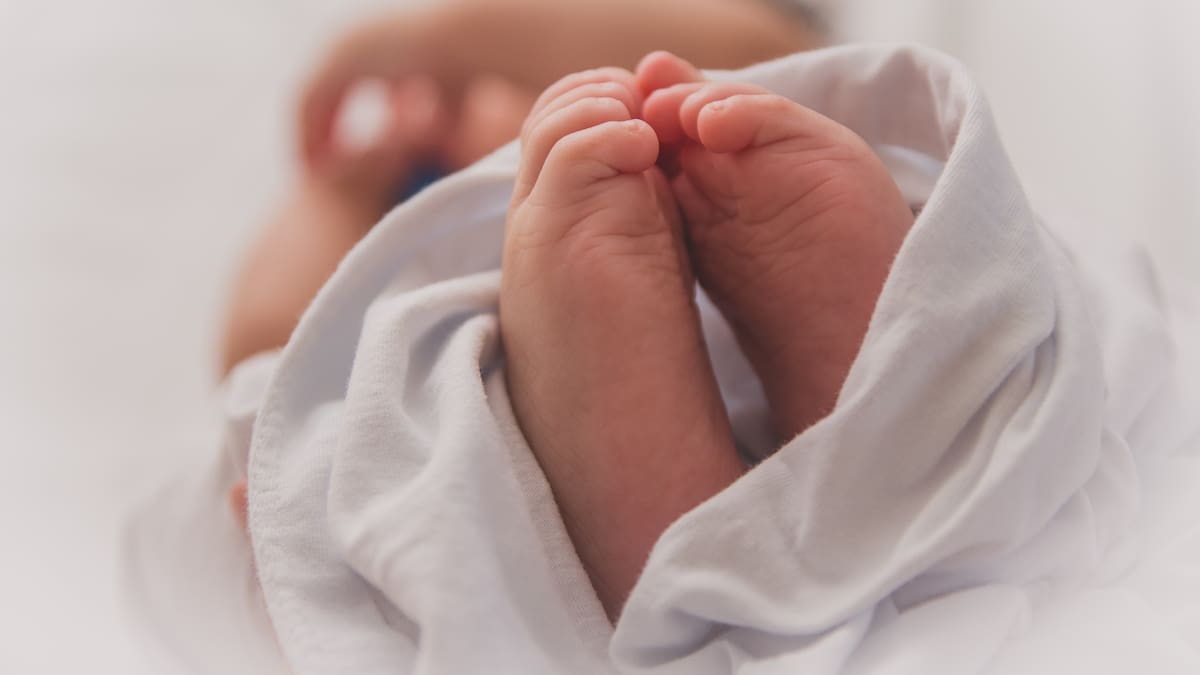Just hours after she returned from Starship, her own little boy was heading there, having been intubated, stabilised and airlifted for emergency treatment.
There, the baby was found to have “multisystem trauma involving his head, chest, and abdomen”.
He had suffered a traumatic brain injury, 10 rib fractures and intra-abdominal injury, including liver laceration and internal bleeding. He also had abdominal wall bruising.
The boy almost died from his injuries and medical experts say he will have “severe lifelong impacts” because of the brain injury.
Father claimed injuries caused by toddler
When spoken to by police, the baby’s father, who can’t be named for legal reasons, said another child had fallen from the couch in the lounge on to the baby.
He said he heard a thud, followed by crying, and when he went into the lounge, he observed the toddler getting off the baby.
The man had also told the mother this account when he spoke to her on the phone about 9pm on Saturday, but he hadn’t raised any concerns about the baby’s health.
The next day, when the mother spoke to the father on the phone again, about midday, she heard the baby was crying unusually.
The baby received extensive treatment and assessment at Starship children’s hospital, and nearly died from his injuries. Photo / NZME
She travelled home from Auckland that afternoon and arrived to find the baby asleep in his father’s arms.
After greeting her other children, she returned her attention to her partner and the baby, and realised something was wrong.
She took the baby to the emergency department, where he was assessed at 5.17pm. At 10pm, a Whakatāne doctor notified police of the baby’s injuries.
While at Starship, the baby underwent “significant paediatric treatment and assessment”, and a Starship specialist paediatrician reported that each of his injuries could not have been caused by the toddler landing on him when falling off a couch.
Nor could they, when taken together as an “entire constellation” of injuries, be explained by the toddler landing on him.
The doctor’s view was that in the absence of another plausible explanation, the only reasonable explanation for all of the baby’s injuries, when considered together, was that they were inflicted injuries.
“It is most likely he has been exposed to compression and impact forces on his torso, and inertial (acceleration-deceleration or whiplash-like) forces with or without impact to his head,” the court summary of facts said.
Judge Louis Bidois sentenced the man to prison.
The doctor’s view was that, based on a combination of the presence of brain swelling, absence of healing and the severity of symptoms, it was most likely the baby suffered his injuries in the hours to days before presenting at the hospital.
‘Serious and significant lack or loss of quality of life’
The 30-year-old father earlier sought a sentence indication, which he accepted, and pleaded guilty to a charge of, with reckless disregard, causing grievous bodily harm to his son.
When Judge Louis Bidois gave the man a sentence indication, the court hadn’t been given an update as to the ongoing medical condition of the boy, and his future prognosis.
Between the time of the indication, however, and this week’s sentencing in the Tauranga District Court, the judge received a medical update.
“It’s going to be a lifelong journey,” the judge said.
“There is a serious and significant lack or loss of quality of life for that child. [You’re] fortunate that I did not have that report at the time I gave the sentence indication, otherwise the start point would have been more like five years, rather than four and a half.”
Because the four-and-a-half-year starting point had been accepted by the defendant, the judge adopted it.
The man’s lawyer, Caitlin Gentleman, asked for discounts for the man’s guilty plea and background factors.
Reports provided to the court outlined the man’s violent and dysfunctional upbringing, and his struggles with drug and alcohol addiction.
Gentleman also highlighted the man’s rehabilitative efforts, including doing counselling and the “Man Up” programme. She also asked for a month’s adjustment for time spent on restrictive bail, when the man had not been able to have a parenting relationship with two of his children.
Crown prosecutor Caitlin Bourke said the recent medical update “really demonstrates the seriousness of the reality for the victim in this case”.
She accepted there were relevant mitigating background factors, particularly the man’s exposure to violence, which had a “causal nexus” with this offending.
“It’s also accepted that [the defendant] has undertaken some rehabilitative efforts, noting that some of those were part of a sentence, so were essentially prescribed to him on his home detention sentence [for unrelated offending],” Bourke said.
“But it is also acknowledged that he has, on his own volition, undertaken the Man Up programme, for example, on a number of occasions.”
The judge said the aggravating features were the vulnerability of the young baby and the breach of trust, given the victim was the man’s son.
He applied a discount of 25% for his guilty plea, and a further global discount of 15% for rehabilitative efforts and background factors.
That led to an end sentence of two years and eight months’ imprisonment.
Judge Bidois did not give a further allowance for the restrictive bail conditions, stating that the court needed to protect the other children in circumstances where “serious harm” had been caused to one.
Hannah Bartlett is a Tauranga-based Open Justice reporter at NZME. She previously covered court and local government for the Nelson Mail, and before that was a radio reporter at Newstalk ZB.

